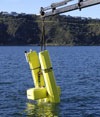Al Gore hasn’t been resting on his laurels since An Inconvenient Truth. His substantial new book Our Choice: A Plan to Solve the Climate Crisis has grown out of the more than 30 lengthy and intensive “Solution Summits” he has organised to enable leading experts from round the world to share their knowledge and experience in subjects relevant to solving the crisis, as well as the one-on-one sessions he has had with others.
The expertise shows. The discussions of energy sources are focused and packed with useful information and judgments. Electricity from the sun is the first. Concentrated solar thermal (CST) power and photovoltaic power are both explained and evaluated. Each has a future, photovoltaics perhaps more so than currently recognised as it develops new chemical processes and fabrication technologies. Indeed some conclude that photovoltaics are near a threshold where they will have a cost advantage over CST and soon even over fossil fuel generation.
Continue reading “Our Choice: Al’s plan to solve the climate crisis”

 I’ve been
I’ve been  Not content with being one of NZ’s leading climate cranks, energy consultant Bryan Leyland also has views on wind power that are well out of the mainstream. Muriel Newman’s NZ Centre for Policy Research this week gives Bryan a chance to
Not content with being one of NZ’s leading climate cranks, energy consultant Bryan Leyland also has views on wind power that are well out of the mainstream. Muriel Newman’s NZ Centre for Policy Research this week gives Bryan a chance to